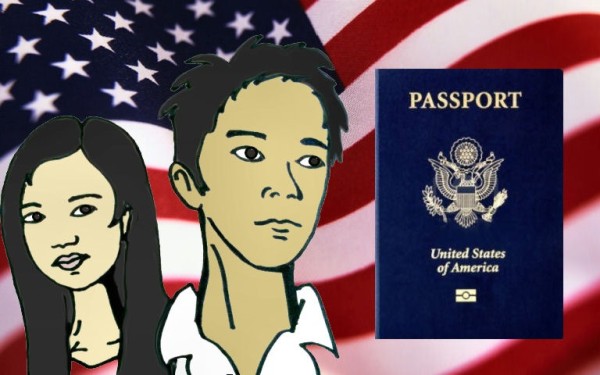
“I hereby declare, on oath, that I absolutely and entirely renounce and abjure all allegiance and fidelity to any foreign . . . state or sovereignty . . . ; that I will support and defend the Constitution and laws of the United States of America against all enemies, foreign and domestic; that I will bear true faith and allegiance to the same; . . . that I take this obligation freely without any mental reservation or purpose of evasion . . .”
That is the U.S. naturalization oath in part.
An acquaintance became a naturalized U.S. citizen for the sole purpose of immigrating her parents and entire family here from China. She said to me with great pride, “I mouthed the entire oath because I refuse to renounce my loyalty to China. I will always be Chinese first and foremost.”
Irritated, I asked her why she bothered to become an American citizen if she had such strong mental reservations. Without a trace of shame or humility, she said, “There’s more benefit to me having a U.S. passport than a Chinese one. That’s all.”
You shouldn’t get to have your cake and eat it too. Citizenship ought to be a privilege, one held in the highest personal regard. If you are not prepared to uphold the Oath of Allegiance, to take to heart the full force of every covenant, then don’t become a U.S. citizen.
Citizenship is not a matter of convenience. It is a matter of piety and pride. Citizenship is not just a legal status. With it comes social and moral obligations, civic duties, responsibilities, and a pledge of loyalty. If you don’t give a damn about being American and if you don’t feel American in your bones, then don’t apply to become one.
I grew up listening to my father’s music: Neil Diamond’s “America” on cassette tape. I swell with patriotism and affiliation when I hear “God Bless the U.S.A.” Admittedly, I am a huge fan of Toby Keith’s “Courtesy of the Red, White, and Blue.” I recall the excitement from my parents, the little American flags they propped prominently on our fireplace after they were naturalized. My parents were proud to be American, so they in turn instilled that sense of pride in their Asian American children.
The American Dream meant something emotionally profound to my parents. Yes, it was about a better life for themselves and for their children, but it was more than that. There was a deep appreciation for this country. There was gratitude for what America had given to them and an earnest desire to give back in any way they could. They wanted to be a part of the American community. They voted. They paid their taxes dutifully. They followed the politics here. They passionately supported and vehemently criticized the many aspects of the American way. They cared. With the whole of their hearts, they wanted to see America prevail.
That care is what’s missing from many Chinese immigrants today. It is why I cannot in good conscience take on immigration cases unless I know that I will be helping someone who will be helping my country. It is why my blood boils over when I hear the Chinese residing in this country speak dismissively of the downfall of America, the rise of China, and how they basically intend to stay in the States to reap every last ounce of benefit until there is no more to reap, then re-pledge their allegiance to China once China is on top. They don’t bother learning any English because they have no intention of ever participating in American society. It is that detached attitude that makes me see red on the topic of immigration.
When I first started to practice law, I begrudgingly took on the assigned immigration cases, but was angry at myself for enabling parasites. I am not against a liberal immigration policy. I am against immigrants who come to this country and exploit the benefits of living here without giving back to the community. I am against those who take and do not give in return.
I am disinclined to help people who have the audacity to state, “If China and the U.S. went to war, I would unequivocally side with China.” A person who feels that way is not entitled to stay in America. If you would love and die for this country, if the Constitution means something to you, if you actively find a way to contribute to the U.S., then I am in full support of your stay and would advocate zealously on your behalf. It’s the immigrant parasites I have a problem with, the ones who see U.S. citizenship as a mere means to a strictly personal end.
In 2013’s hot button debate over immigration reform, I hope people think beyond mere economics and include in their framework of thought what it means to be an American citizen. Few would feel any hostility for open immigration policies if Americans were assured that those being naturalized were people who fully appreciate the Oath of Allegiance.
As my focus is primarily on the Asian American community, I hope that Asian immigrants, in particular the Chinese, are able to care earnestly for U.S. citizenship, that they are prepared to swear their Oaths without hesitation, without mouthing the words as some act of personal defiance, because if you love China so much that there is no room in your heart for America, then don’t become American.
- Excited
- Fascinated
- Amused
- Disgusted
- Sad
- Angry








